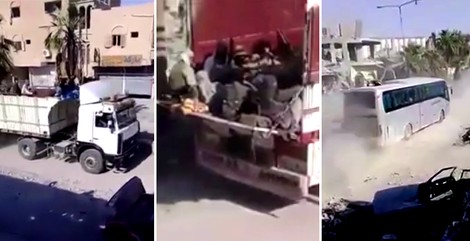Your podcast discovery platform
Curious minds select the most fascinating podcasts from around the world. Discover hand-piqd audio recommendations on your favorite topics.

piqer for: Globalization and politics Global finds
I am an Australian freelance journalist focussing on conflicts, politics, and warzones around the world. I have been working as a journalist for over 5 years, having reported from Australia, Germany, China, Egypt, Palestine, and Ukraine. I am especially interested in the way that new technologies are being used in conflict zones in unexpected and often disturbing ways. During my time working as a journalist, I also co-founded open-source war reporting site Conflict News.
Raqqa's dirty secret
War is messy by definition. Throughout history, many groups of combatants have abandoned lofty moral promises or ideological commitments in the face of practical expediency. So it should be no surprise to anyone that the war in Syria continues these traditions.
The final battle to retake the 'capital' of the Islamic State – Ar-Raqqa – was among the bloodiest of the now 6-year war. As has been well documented in a wide range of articles (some of which I have previously recommended on piqd) the level of destruction in the city was almost absolute, and civilians – the majority of which did not support IS – were dying by the hundreds. As the metaphorical noose closed around the necks of the remaining IS fighters in the city, these civilians became their hostages – their final bargaining chip.
Entitled 'Raqqa's dirty secret', this multimedia report by the BBC details the bargain which IS eventually struck with the Syrian Democratic Forces and their US backers. Hundreds of fighters and their families were allowed to escape the city in a huge convoy, and in exchange, the Battle of Raqqa would end, and further damage to the city and its civilian population would be avoided.
However, despite being very informative, and a good insight into the way wars are fought, I feel this article lacks context. Firstly, the actual motivation for the US and the SDF to allow this deal is barely touched upon, and instead, by framing the deal as 'dirty' they overlook the critical humanitarian situation in Raqqa. Secondly, this deal was an open secret. It was heavily reported on social media, and most observers of the situation in Syria were aware that it occurred. Finally, the deal was not unprecedented, but rather followed a pattern of similar deals in Manbij, Aleppo, Damascus and other areas in Syria.
So do read this article, but keep in mind its context, and only then will you be able to fully understand if this deal was truly justified.
